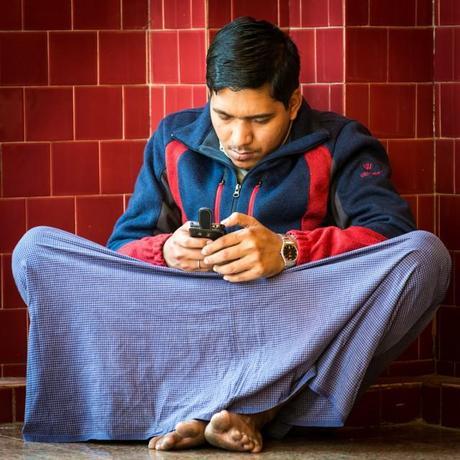
A Burmese man checks his mobile phone.(Photo: Flickr)
Since 2011, Burma has slowly been transitioning into a fledgling democracy from a reclusive military dictatorship. Some positive steps have taken place – multi-party elections have been held and more than 3,000 political prisoners have been freed. Yet as the U.S. deputy national security adviser stated recently, “[p]arts of the reform effort have stalled, parts have moved forward and parts, we’ve seen, have even moved backward, so it’s a mixed picture.”
The biggest test for Burma’s democratic transition is the upcoming general elections taking place in November. For citizens to make informed decisions and to hold future leaders accountable, they must be empowered with knowledge. The potential political leaders also must be educated about how to govern, as well as find ways to communicate and engage with their constituents. And technology, more specifically mobile phones, will have a large role to play for both groups.
According to a recent OneWorld report, Burma’s democratic development coincides with policy changes in the information and communication technologies (ICT) sector. While only about 10 percent of the population now own mobile phones, this number is expected to leap significantly (up to 80 percent by 2016) as international telecommunication companies from Norway, Qatar, and Japan are working to launch affordable services and enhance data connections. And youth, who are the majority in Burma (the median age is 27) and the hopeful drivers of the transition, are typically the first adopters of new technologies in the country.
This presents a tremendous opportunity for Burma’s democracy. Due to decades of autocratic military rule, the civil society sector is just emerging and its capacity is limited. As more people have access to mobile technology and learn to use them, more citizens can participate in civil society or media, and for the government to engage with its constituents via mobile phones.
To learn more about current state of ICT, democracy and active citizenship in Myanmar, read more about in the full report of OneWorld’s recent scoping study.
Maiko Nakagaki is a Program Officer for Global Programs at CIPE.

